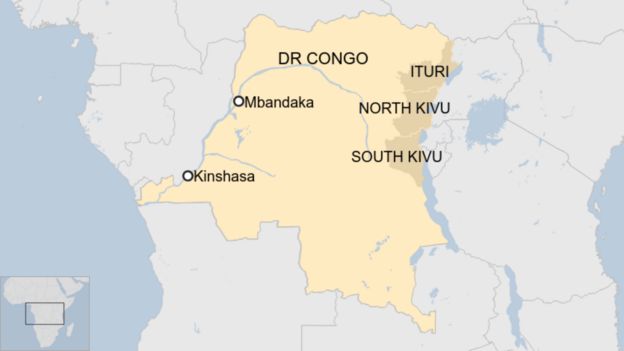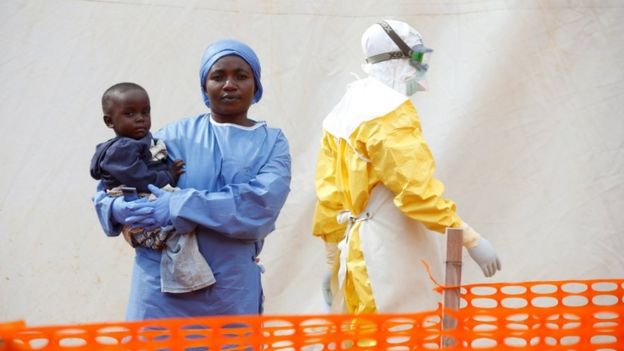DR Congo Declares Deadliest Ebola Outbreak Over

The
worst-ever outbreak of Ebola in the Democratic Republic of Congo has officially
been declared over, almost two years after it began.
No new cases
of the disease have been reported in the north-east of the country, where
dozens of armed groups operate, since 27 April.
Some 2,280
people died since the outbreak began in August 2018.
The deadliest
outbreak on record was in West Africa between 2014 and 2016 with more than
11,000 deaths.
The World
Health Organization (WHO) said the end of the outbreak in the east, where
insecurity is also endemic, was a cause for celebration as it had a been a
tough and often dangerous two years for those involved in fighting it.
However, DR
Congo, which is the size of mainland western Europe, is dealing a fresh Ebola
outbreak in the north-west of the country.

The case in
Mbandaka was announced on 1 June where 13 people have since died. Genetic
analysis shows it is a different strain of the virus to that found in the east.
The WHO in
DR Congo has told the BBC the situation in Mbandaka - the country's 11th
outbreak - is nearly under control.
But new
Ebola outbreaks are to be expected given the existence of the virus in animals
in many parts of DR Congo, the WHO says.
For an
outbreak to be declared over, there has to be a 42-day period since the last
positive case was tested negative and discharged from hospital.
The outbreak
in eastern DR Congo was the 10th to have hit the country since 1976, when the
virus was first discovered by a group of scientists who decided to call it
Ebola after a local river.
Health Minister
Eteni Longondo described it as "the longest, most complex and
deadliest" in the DR Congo's history.
Decades of
conflict in the east have led to widespread mistrust of the authorities, which
has made it harder for health workers to treat sick and at-risk people.
BBC health
reporter Rhoda Odhiambo says there had been more than 420 attacks on health
facilities in the region by armed groups since 2018, which greatly hampered
efforts to contain the spread of the disease.
Another
challenge in tackling the eastern outbreak was its geographical span across
1200km (475 miles) and three provinces - North Kivu, Ituri and South Kivu, she
says.
Fear of the
deadly Ebola virus - which sees patients suffer gruesome symptoms and rules out
customary burial rites - has been another challenge.
WHO's
regional director to Africa says the end of the outbreak was only possible
because of collaboration.

"This
is a sign of hope that with solidarity and science epidemics can be
controlled," Dr Matshidiso Moeti said.
The
largest-ever Ebola vaccine campaign was a key factor in containing its spread.
The
introduction of two experimental vaccines saw more than 320,000 people
inoculated.
Health
workers and Congolese authorities have mostly succeeded in preventing the
spread to neighbouring countries.
In Uganda
last year, a five-year-old boy and his grandmother died days after
visiting family across the border in DR Congo.
Months
later, Tanzania was criticised by the WHO for failing to provide
information about suspected Ebola infections, including one person who died
Ebola is a
virus that initially causes sudden fever, intense weakness, muscle pain and a
sore throat
It
progresses to vomiting, diarrhoea and both internal and external bleeding
People are
infected when they have direct contact through broken skin, or the mouth and
nose, with the blood, vomit, faeces or bodily fluids of someone with Ebola
Patients
tend to die from dehydration and multiple organ failure.
FROM .bbc.com/news/world-africa

No comments